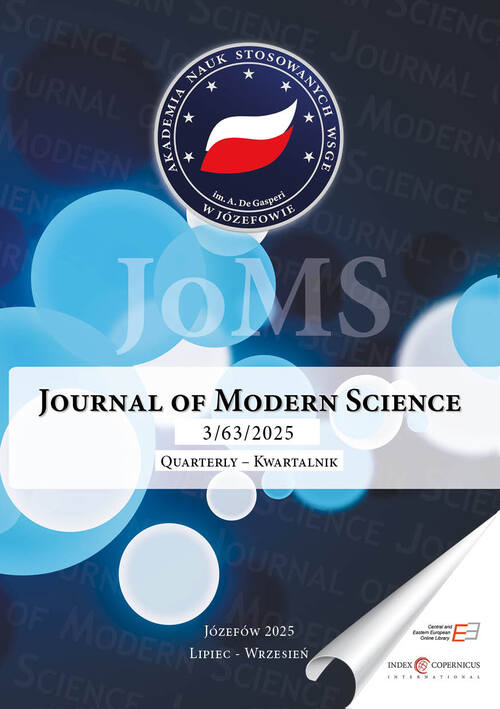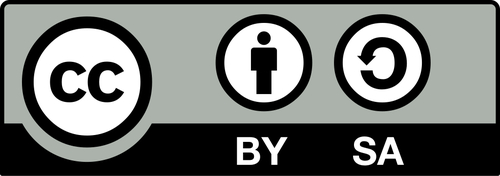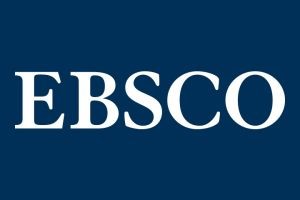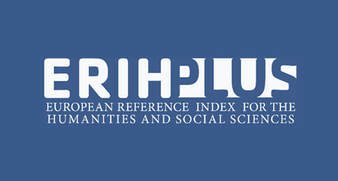About the Journal
Editorial Board
Scientific Council
Reviewers
Ethical Code
AI Policy
Special Issue
GDRP - information on the processing of personal data
Terms of the journal
Indexing
Licenses & Access
Archive
For Authors
Publishing Policy
Technical instruction for the authors
Agreement CC BY-SA
Copyright statement
Publication procedure
Peer Review Process
Reviewer’s form .doc
Reviewer’s form .pdf
Contact
About the Journal
Editorial Board
Scientific Council
Reviewers
Ethical Code
AI Policy
Special Issue
GDRP - information on the processing of personal data
Terms of the journal
Indexing
Licenses & Access
Ethical Code
Introduction
The editorial office of the Journal of Modern Science applies the guidelines and procedures specified by the Committee on Publication Ethics (COPE) included in the "Ethical Guidelines of the Committee on Publication Ethics for reviewers of scientific works" (COPE Ethical Guidelines for Peer Reviewers) davailable on the website: www.publicationethics.org as well as the editorial office uses all possible measures to prevent copyright abuse and dishonesty.
The editorial office ensures the confidentiality of personal data of all entities involved in the publication in accordance with the requirements of the GDPR (General Data Protection Regulation of 4th May 2016: https://eur-lex.europa.eu/eli/reg/2016/679/oj), adopted in internal policy (rules of internal policy are available (HERE), as well as the confidentiality of all materials submitted to the editorial office until their publication.
The adopted rules of conduct apply to the Editorial Board and the editorial office, the Scientific Council, and reviewers and the authors.
Responsibilities and duties of the Editorial Board
Review and publication process:
The Editorial Board is responsible for supervising the review and publication process, including the selection of reviewers, evaluation of reviews and decisions on acceptance or rejection of articles.
Avoidance of conflicts of interest:
Editors and members of the Editorial Board should avoid conflicts of interest and remain objective in the process of initial reviews and publication decisions.
Principles of publication ethics:
The Editorial Board should comply with the principles of publication ethics and take action in the event of its violations, fraud, plagiarism, or any unfair practices.
Responsibilities and duties of the Scientific Council
Supervision of the journal's policy:
The Scientific Council is responsible for supervising the journal's policy, setting publication directions, and developing the journal.
Support for the review process:
The Scientific Council may support the publication review process by providing access to reviewers with appropriate competences.
Responsibilities and duties of Reviewers
Objectivity and Integrity:
Reviewers are committed to reviewing papers honestly, objectively, and confidentially. They avoid conflicts of interest and operate in accordance with the principles of publishing ethics. The reviewers' comments should not contain any offensive or libelous remarks.
Reporting Conflicts of Interest:
Reviewers are required to report any potential conflicts of interest which may affect their ability to provide an honest review.
Suggesting corrections:
Reviewers should provide constructive criticism and suggest corrections to help authors with the process of improving their work.
Recognition of Sources:
Reviewers are expected to highlight any relevant published works that the author has omitted to cite. Any overlaps or resemblances with other authors' works should be brought to the attention of the Editor-in-Chief.
Punctuality:
Reviewers are obliged to submit the review on time, and if they are unable to review the work, they should report it to the appropriate editor of the journal.
Responsibilities and duties of Authors
Plagiarism, Originality and honesty:
Authors are committed to present the results of authentic and honest research. They avoid manipulation of results, falsification of research data and plagiarism. The author / authors are required to confirm the originality of their work submitted for publication. All cited content should have references to sources and should be quoted in the proper way. The issue of plagiarism is treated as unethical and unacceptable conduct. The editorial board is checking each submitted for publication material with the use of Internet anti-plagiarism system. In the case of suspected plagiarism, the Editorial Board is sending the note with comment to author or authors for making the correction. The articles which do not comply with antiplagiarism rules cannot be published in Journal of Modern Science. Materials submitted by publication are also checked in terms of content generation by Artificial Intelligence. In such cases, the procedures are the same as with the issue of plagiarism.
Authorship and co-authorship:
All authors of the article should be listed and their contribution to the research and preparation of the publication should be clear. Authors are responsible only for those parts of the work to which they contributed intellectually.
Data Availability:
Authors should maintain research data and make it available to other researchers who may wish to review it.
Research ethics policies for studies involving the participation of human subjects (e.g., informed consent for participation/publication, participant anonymity):
Authors are required to act according to research ethics policies for studies involving human subjects which are guided by principles designed to protect participants' rights, safety, and well-being. Those principles are included in Declaration of Helsinki which can be obtained on the World Medical Association website: https://www.wma.net/policies-post/wma-declaration-of-helsinki/.
All research involving human participants must adhere to the principle of informed consent. Participants must be clearly informed about the purpose, procedures, potential benefits, and risks associated with their participation in the study. Consent must be given voluntarily, without any pressure or coercion.
If research findings are intended for publication, participants must be informed about the potential use of their data and must provide explicit consent for publication, particularly if there is any possibility of identifying them.
Authors and all parties engaged in the publishing process are committed to protecting the anonymity of research participants. Identifiable participant data must not be disclosed without their explicit consent. All publications must ensure that participant information is presented in a way that prevents identification unless the participant agrees to have their identity disclosed.
Authors bear full responsibility for adhering to ethical principles during the research and publication process. In cases where the ethical compliance of a study is in question, the publishing house reserves the right to request additional explanations or evidence.
Failure to comply with the above principles may result in rejection or withdrawal of the work from publication. The publishing house reserves the right to report violations to relevant supervisory institutions.
Correction:
Authors are required to make corrections pointed out by reviewers and/or by editorial board. The authors corrections can be done at different stages of the publication process as they are closely related to the procedure of reviewing.
Financial disclosures:
Authors are required to disclose any sources of funding for their research which may influence the results or interpretation of the work.
Avoidance of conflicts of interest:
Authors should avoid conflicts of interest which may affect the integrity and objectivity of the work and publication.
Retractions
Retraction refers to a process where a published article in a journal is flagged as significantly defective, to the point where its findings and conclusions are no longer deemed trustworthy. Retracted articles are not deleted from the publication but are instead labeled as retracted. In certain cases, an article may be removed from publication entirely, such as when it is blatantly defamatory, violates personal privacy, is subject to a court order, or presents a serious public health risk.
A retraction may be initiated by the editors of a journal, or by the author(s) of the papers. In such cases, the note signed by editor or author(s) is published on the Journal of Modern Science’s website is published. The note contained the information about the reason for retraction as well as the link to the retracted article. In addition, a screen preceding the article will appear, which contains the retraction note.
Publishing malpractices
Publishing malpractices refer to unethical or dishonest practices related to the process of publishing scientific, literary, or other types of work. These can involve actions by authors, publishers, editors, or reviewers such as:
Plagiarism
Copying someone else's work or ideas without proper acknowledgment of authorship.
Generating the content with the use of Artificial Intelligence
Publishing the materials not written by authors but generated by tools or applications using AI.
Data falsification
Deliberately altering or fabricating data, research results, or content to achieve a favorable outcome.
Duplicate publication
Publishing the same work in different journals or venues without proper disclosure, which can mislead readers and the academic community.
Ghostwriting and guest authorship
Ghostwriting: When the actual author remains anonymous, and someone else signs the work.
Guest authorship: Adding the name of someone who did not significantly contribute to the work.
Citation manipulation
Publishers or reviewers require authors to cite their works or publications from a specific journal in order to artificially increase citation rates.
Conflicts of interest
Failing to disclose conflicts of interest that could affect the credibility of the work.
Lack of transparency in the review process
Manipulating the review process or using fake reviews written by the author or people associated with them.
All these publishing malpractices harm the reputation of authors, institutions, and publishers, undermine trust in science, and can lead to retraction of publications and professional sanctions. The Scientific Council, the Editorial Board as well as the editors and the publisher, at each stage of the publication process, take into account only the scientific value of the submitted articles, without taking into account the race, ethnic origin, citizenship, gender, sexual orientation, political views, or religious beliefs of the author (or authors).
In addition, any of those publishing malpractices are not acceptable and in the situation of reviling such cases, they should be reported, and proper action should be taken. To prevent instances of "ghostwriting" and "guest authorship," the Editorial Board of "Journal of Modern |Science" requires authors of publications to disclose the contributions of individuals involved in preparing the publication (including their affiliations and contributions, such as the author of the idea, assumptions, methodology, protocol, etc., used in the publication). The main person responsible for meeting these requirements is the author submitting the publication for print. The Editorial Board also requires information about the sources of funding for the publication and the contributions of research institutions, associations, and other parties ("financial disclosure").
We process personal data collected when visiting the website. The function of obtaining information about users and their behavior is carried out by voluntarily entered information in forms and saving cookies in end devices. Data, including cookies, are used to provide services, improve the user experience and to analyze the traffic in accordance with the Privacy policy. Data are also collected and processed by Google Analytics tool (more).
You can change cookies settings in your browser. Restricted use of cookies in the browser configuration may affect some functionalities of the website.
You can change cookies settings in your browser. Restricted use of cookies in the browser configuration may affect some functionalities of the website.













